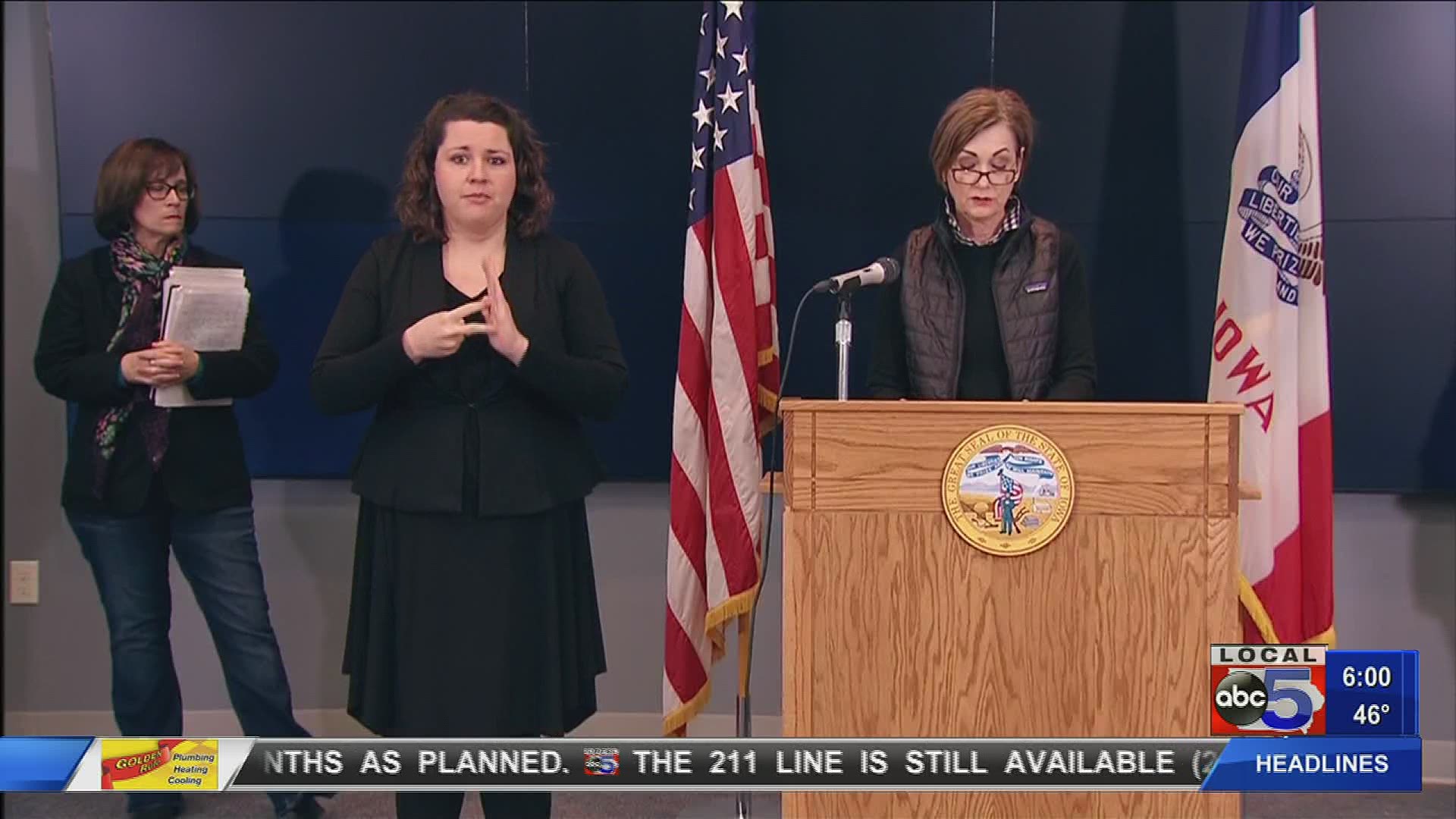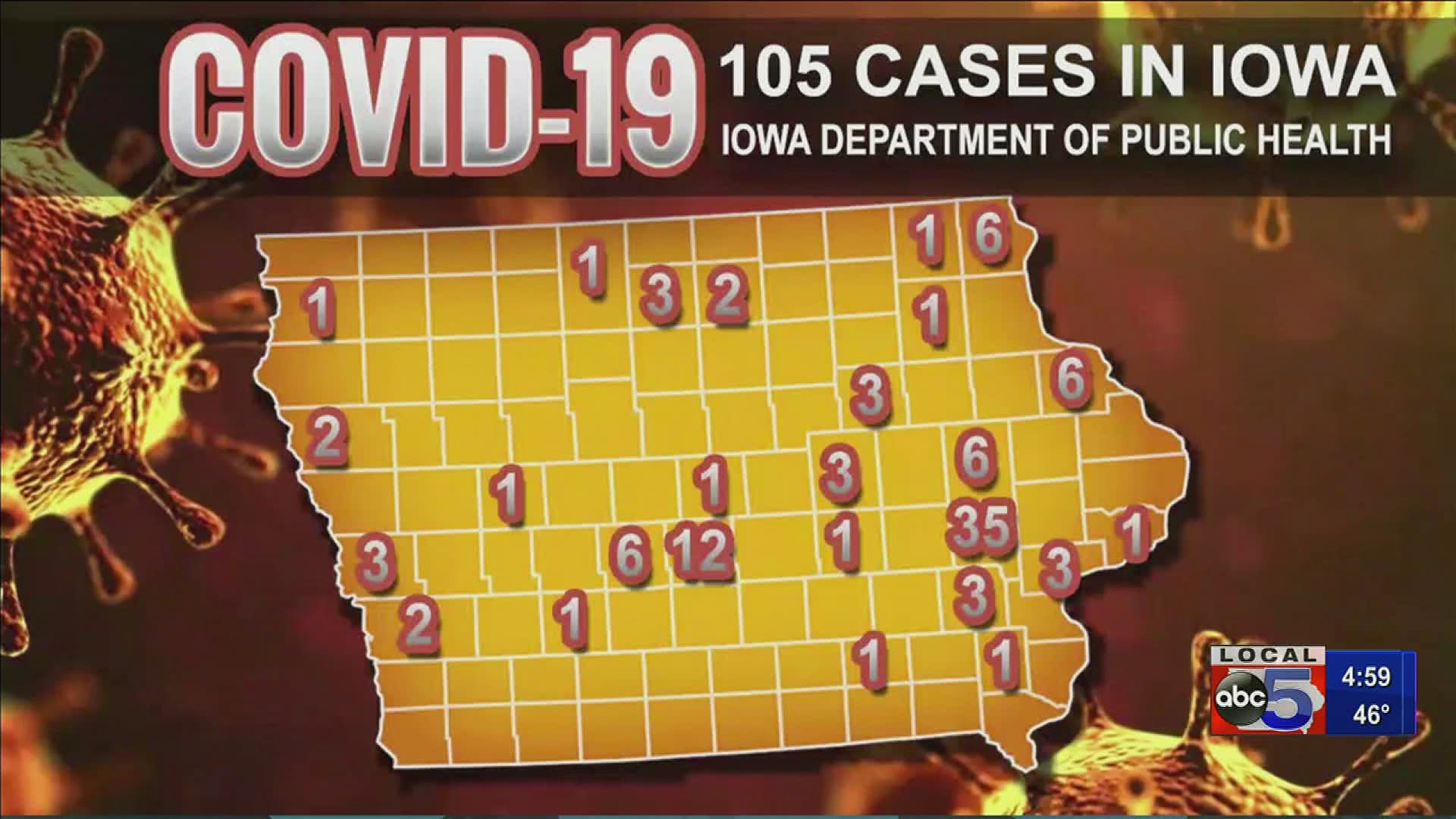DES MOINES, Iowa — There are now over 100 positive cases of COVID-19 in Iowa, and the disruption of small businesses is becoming a reality.
On Saturday, the U.S. Small Business Administration (SBA) issued a disaster declaration for the state of Iowa, according to the office of Gov. Kim Reynolds.
From January 31, 2020 and on, the declaration will allow pandemic-impacted small businesses to apply for low-interest support loans. The SBA, through the Economic Injury Disaster Loan program, can provide up to $2 million in loans at a "very low interest rate," according to Reynolds.
On Monday, Reynolds announced a three-pronged plan for a small business relief program to provide financial assistance for Iowa's small businesses.
"I fully understand that this doesn't make up for having your businesses close for a period of time or your customers staying home," Reynolds said, "but it is our hope that we can help businesses weather the storm."
"And as governor, I want you to know that I am committed to helping them do just that," she said.
The Iowa Economic Development Authority (IEDA), Iowa Department of Revenue (IDR) and Iowa Workforce Development (IWD) are making funds available for small grants to be awarded to businesses affected by the coronavirus pandemic.
To be eligible for a Small Business Relief Grant, businesses must be experiencing disruption from the COVID-19 pandemic and have two to 25 employees prior to March 17, 2020.
The IDR will also automatically extend the sales and withholding tax deadline for any business that receives a grant and will consider an extension for those that apply.
The IWD will allow businesses with fewer than 50 employees to delay their unemployment tax payments for the first quarter until July 31.
The dual application for grant assistance and tax deferral opens Tuesday morning at 8:00. You can find the application right here. The deadline is March 31 at 12:00 p.m.
IEDA Director Debbie Durham says this grant program is supposed to help businesses until they can get money from the federal government.
"This money that we are talking about is simply a stop gap," Durham stressed.
Durham said that the main goal is to keep doors opened for businesses.
"This is not intended to keep people at the same operating level for 90 days, it really is that 30 day, until we know what assessment is coming from Washington and when that is going to be there," she concluded.
A total of 105 people are confirmed to have the coronavirus and 2,043 tests have come back negative.
The IDPH says the locations and age ranges of those infected include:
- Allamakee County, 1 adult (18-40 years)
- Dubuque County, 1 adult (18-40 years), 1 older adult (61-80 years)
- Hancock County, 2 older adults (61-80 years)
- Johnson County, 1 middle-aged adult (41-60 years), 2 older adults (61-80 years)
- Linn County, 1 adult (18-40 years), 1 middle-aged adult (41-60 years)
- Muscatine County, 1 middle-aged adult (41-60 years)
- Polk County, 1 adult (18-40 years), 1 middle-aged adult (41-60 years)
- Wapello County, 1 older adult (61-80 years)
- Woodbury County, 1 middle-aged adult (41-60 years)
Reynolds also said that traffic numbers compared to last year are lower, meaning Iowans are social distancing to the best of their abilities.
"Overall traffic with passengers on rural roads has seen a 47 percent drop but yet truck traffic is normal," she explained, "So, we are seeing the essential services being delivered. I think people are still hearing the message and they are staying home."
The Centers for Disease Control and Prevention recommends frequent hand washing, avoiding close contact and staying home if you are sick as main areas of focus for prevention and containment of COVID-19.


